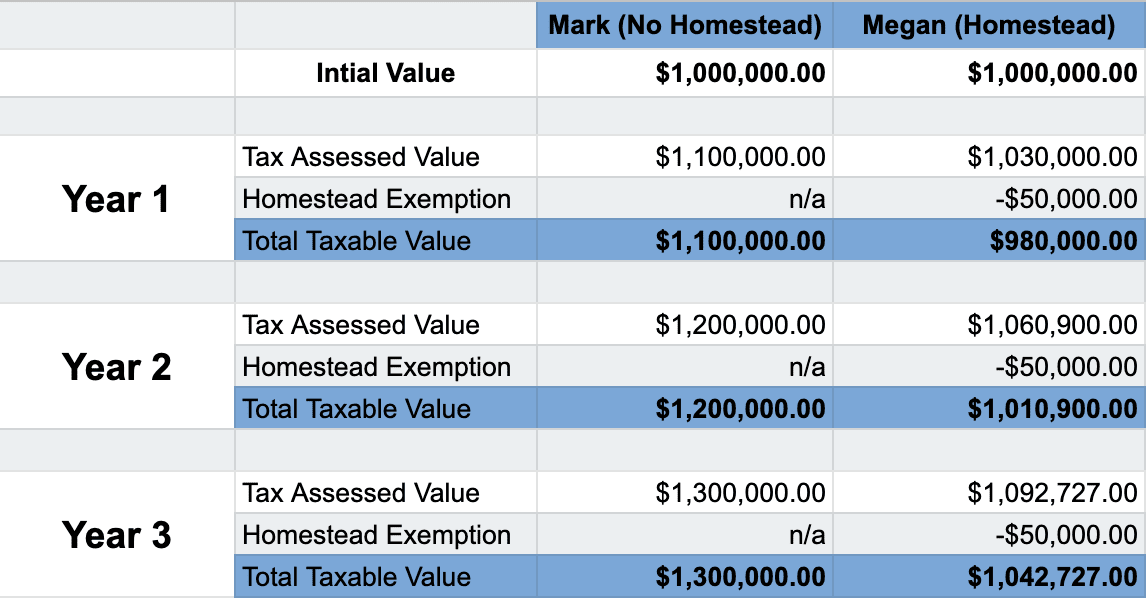What is the Florida Homestead Exemption, and how can Florida residents use it to minimize their tax bill?
Written by James V. Smith of Hughes Browne Group
Benjamin Franklin is credited with a quote we’ve all heard countless times - “...in this world nothing can be said to be certain, except death and taxes.” Some would say this stands as true today as when he penned his now famous letter in 1789. But while taxes might be an absolute certainty, the state of Florida does offer residents some provisions to help lower that ever-present tax bill. Most notably - the “Homestead Exemption” and the “Save Our Homes Act”. So what exactly are these exemptions, how do they work together, and how can Florida residents use the exemptions to lower their tax burden?
Let’s start with the Homestead Exemption. The application process is very straightforward and can be completed online. Once a Florida resident is approved for Homestead, they’ll have a $50,000 exemption applied to their property's tax assessed value, as long as it remains a “permanent residence”. This exemption is deducted from the tax assessed value prior to calculating the tax bill using the local millage rate.
In order to qualify for a Homestead Exemption, certain requirements need to be met.
- You must be a Florida resident
- The home must be your primary residence
- Your driver’s license/license plates must be Florida issued, and match the address being Homesteaded.
- You must have been living in the home as of January 1 of that year.
Each home that qualifies for the Homestead Exemption is also protected by another Florida law created with the 1995 Save Our Homes Act. In addition to the $50,000 exemption, and perhaps more significantly, the Save Our Homes Act caps the increase to the assessed value of your home to a maximum of 3% each year, or the change in the Consumer Price Index, whichever is lower.
Here’s an example to illustrate:
Imagine Mark and Megan each bought brand new, identical homes in Palm Beach County three years ago, each with a tax assessed value of $1,000,000. Mark never applied for a homestead exemption, and his home’s tax-assessed value has risen 30%. This year, he’ll pay taxes on a $1,300,000 valuation.
Megan homesteaded her residence right after she bought it. Due to the Save Our Homes Act, her tax assessed value cannot rise more than 3% in any one year. The homesteaded status also gives her a $50,000 exemption.
As a result, she’ll be paying taxes on a $1,042,727 valuation. In just three years of an appreciating market, Megan’s property taxes will be over 20% lower than Mark’s.
Homesteading your property in Florida can be hugely impactful on your tax bill over time. In addition to these property tax exemptions, Florida offers other tax benefits to full time residents as well. Contact me to learn more about the Homestead Exemption and other tax benefits Florida residents can enjoy - including portability of this exemption!

